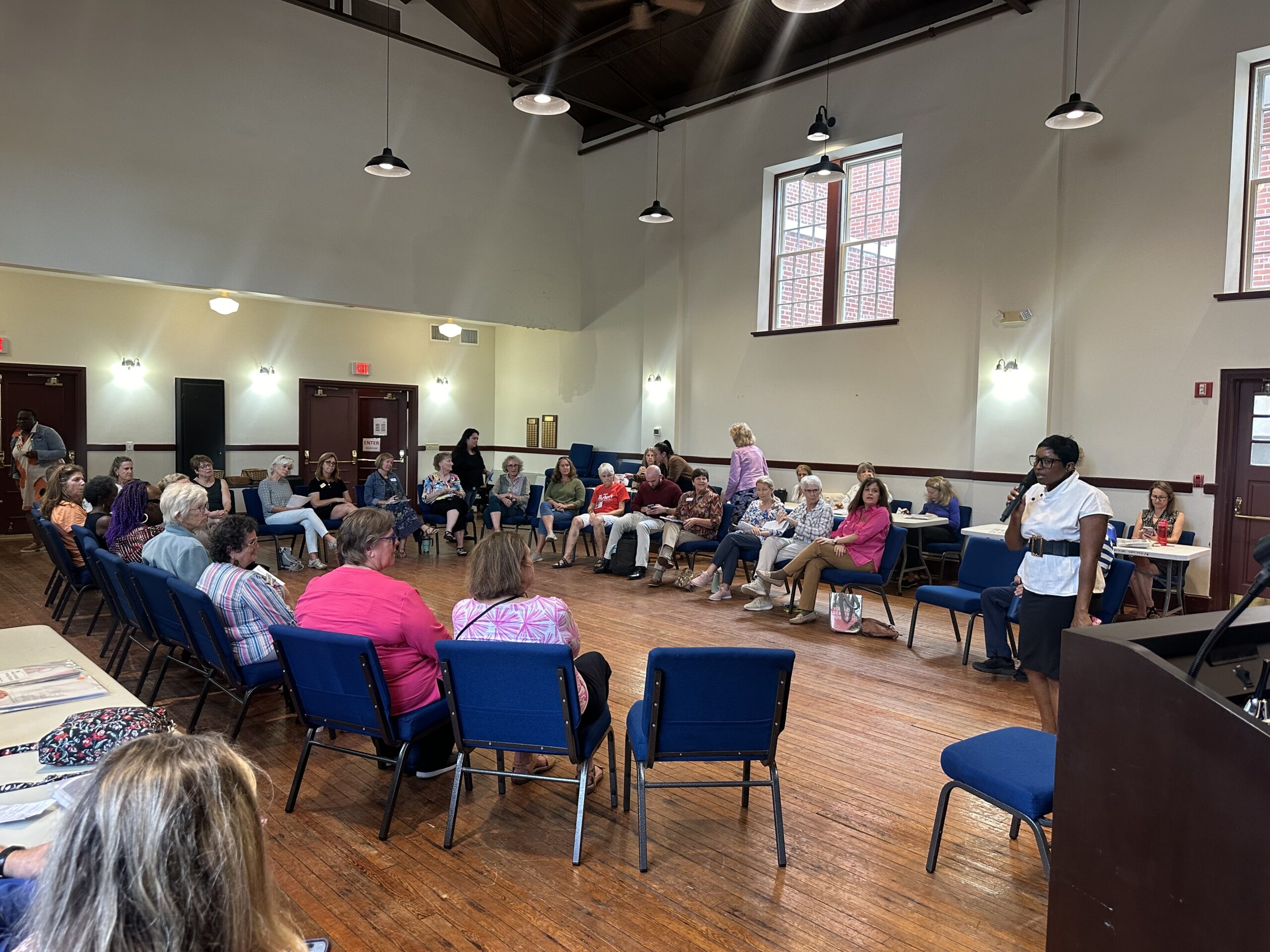Fernandina Beach, FL — On October 22, 2024, volunteers, nonprofit organizations, and community members gathered at the Peck Center in Fernandina Beach to participate in the “Meet ALICE Experience,” an immersive poverty simulation hosted by Barnabas Center and the United Way of Northeast Florida. The event offered attendees a chance to experience the day-to-day struggles faced by local families living in poverty.
ALICE, which stands for Asset Limited, Income Constrained, Employed, describes those working low-wage jobs who struggle to make ends meet. Over 40% of Nassau County residents fall into this category, forced to make difficult decisions like whether to pay the electric bill or put food on the table.
Jamie Reynolds, President and CEO of Barnabas Center, emphasized the importance of educating the public about the ALICE population.
“We are proud to partner with the United Way to raise awareness about the challenges facing ALICE households. In response to this growing need, we’re offering $10 medical fees to our patients, ensuring that everyone has access to affordable healthcare,” Reynolds said.
Nonprofit organizations such as the Nassau County Council on Aging, Homeless Coalition of Nassau County, Take Stock in Children, and the Nassau County Health Department were among the groups that participated in the simulation. Representatives from these organizations and local community members learned firsthand about the struggles this group faces daily.
LaShaundra Sawyer, Manager of Volunteer and Community Engagement at United Way of Northeast Florida, encouraged participants to describe their feelings after the experience. Words like “desperate,” “frustrated,” “hopeless,” and “fearful” echoed throughout the room, illustrating the emotional toll of living in poverty.
Participants were assigned roles as members of families facing real-life scenarios, such as job loss, illness, or losing transportation. Throughout the simulation, they were forced to make decisions about which basic needs they could afford, often having to sacrifice one necessity for another.
One participant reflected on the emotional weight of the experience, sharing, “I couldn’t even check in with my children because I was so overwhelmed trying to figure out how to pay the bills with what little I had.”
The simulation underscored the urgency of supporting those in the ALICE demographic and fostered a deeper sense of empathy and understanding among all who attended.

